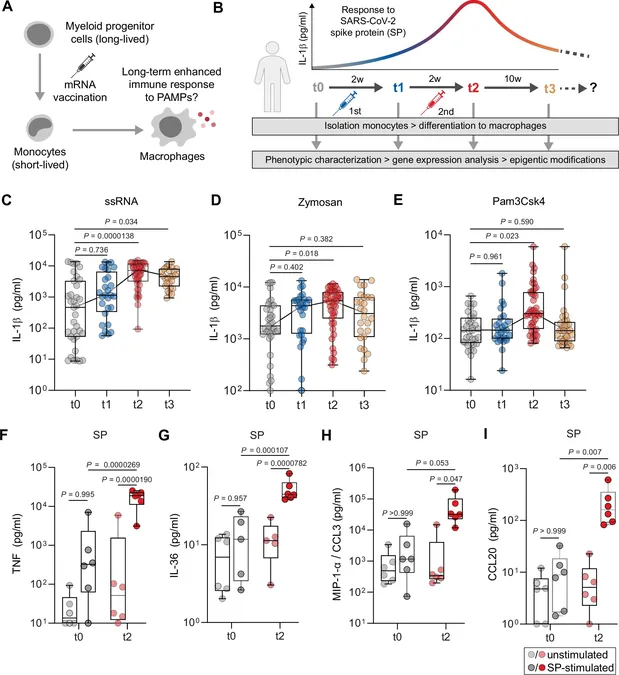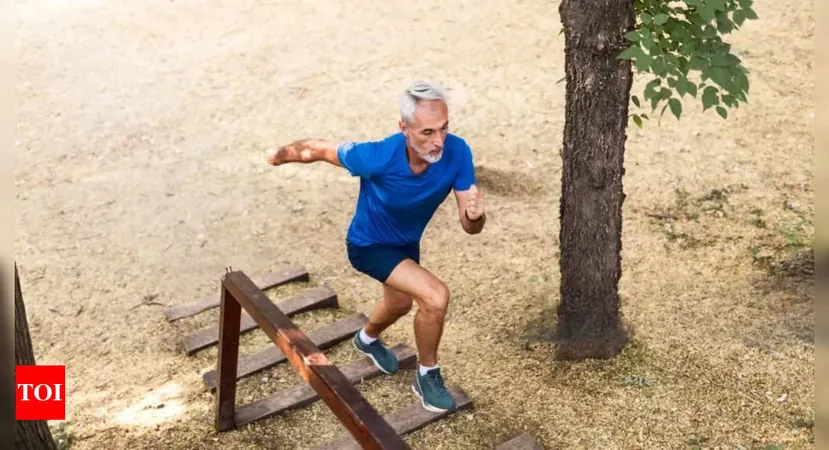
Groundbreaking Study Reveals mRNA COVID-19 Vaccines Can Enhance Long-Term Immune Memory!
2025-03-26
Author: Nur
Introduction
In an exciting advancement in immunology, researchers at the University of Cologne and University Hospital Cologne have unveiled that mRNA-based COVID-19 vaccinations do far more than prompt immediate immune responses—they induce lasting epigenetic changes in our body's innate immune cells.
Study Overview
Published in Molecular Systems Biology, the study, titled “Persistent epigenetic memory of SARS-CoV-2 mRNA vaccination in monocyte-derived macrophages,” was led by Professor Dr. Jan Rybniker and Dr. Robert Hänsel-Hertsch, prominent figures at the Center for Molecular Medicine Cologne (CMMC). Their research shows how these vaccines can effectively 'train' the immune system, creating a long-term memory that could enhance our defenses against a variety of pathogens.
Understanding the Immune System
The immune system operates through two primary mechanisms: the innate and adaptive immune responses. The innate system offers immediate, general protection, while the adaptive response develops specific defenses over time. This study emphasizes the pivotal role of epigenetic modifications—chemical tags that fiercely regulate gene activity without altering the underlying DNA sequence—in bolstering the immune system's capability.
Key Findings
Dr. Alexander Simonis, the lead author, emphasized the significance of their findings: “Our research indicates that mRNA vaccines induce an epigenetic 'training' of innate immune cells, facilitating a sustained immune response.” This revolutionary mechanism could pave the way for enhanced innate immunity that provides broader protection alongside the adaptive immune responses, potentially offering a shield against pathogens that the vaccine was not originally designed to combat.
Research Methodology
The researchers analyzed samples from vaccinated participants at various stages, focusing on monocytes—white blood cells that evolve into macrophages. They discovered that mRNA vaccinations led to significant, lasting changes in the acetylation of genes crucial for immune responses, persisting for six months post-vaccination. This suggests that the innate immune system retains an epigenetic memory, contributing to robust future defenses. Interestingly, as human monocytes only survive in the bloodstream for about three days, the team posits that these epigenetic markers are also present in their precursor cells located in the bone marrow.
Vaccination Recommendations
Notably, the study indicates that a single dose may not generate these lasting markers effectively. “Two vaccinations or a booster shot are necessary to establish these enduring epigenetic changes, underscoring the importance of adhering to vaccination schedules for optimal immune memory,” Dr. Rybniker noted.
Implications of Enhanced Immune Response
The enhanced immune response linked to these epigenetic changes facilitates the increased expression of pro-inflammatory genes, leading to greater production of cytokines—essential signaling molecules that mobilize various immune cells for pathogen combat.
Broader Implications
Dr. Sebastian Theobald, another key author, explained the broader implications: “Since these responses involve the innate immune system, which operates in a relatively non-specific manner, mRNA vaccinations might also confer temporary protection against diverse viruses and bacteria.”
Conclusion
In a remarkable conclusion, Dr. Hänsel-Hertsch pointed out that histone modifications in macrophages don’t just activate immune response genes; they also contribute to the formation of guanine quadruplex DNA structures, which play a vital role in long-lasting immunity. These findings could significantly influence the design of future vaccines, not only against COVID-19 but also for various infectious diseases, suggesting a new frontier in immunology where long-term protection is attainable through innovative strategies. Stay tuned as we uncover how these groundbreaking advancements shape our approach to global health and vaccination strategies moving forward!




 Brasil (PT)
Brasil (PT)
 Canada (EN)
Canada (EN)
 Chile (ES)
Chile (ES)
 Česko (CS)
Česko (CS)
 대한민국 (KO)
대한민국 (KO)
 España (ES)
España (ES)
 France (FR)
France (FR)
 Hong Kong (EN)
Hong Kong (EN)
 Italia (IT)
Italia (IT)
 日本 (JA)
日本 (JA)
 Magyarország (HU)
Magyarország (HU)
 Norge (NO)
Norge (NO)
 Polska (PL)
Polska (PL)
 Schweiz (DE)
Schweiz (DE)
 Singapore (EN)
Singapore (EN)
 Sverige (SV)
Sverige (SV)
 Suomi (FI)
Suomi (FI)
 Türkiye (TR)
Türkiye (TR)
 الإمارات العربية المتحدة (AR)
الإمارات العربية المتحدة (AR)